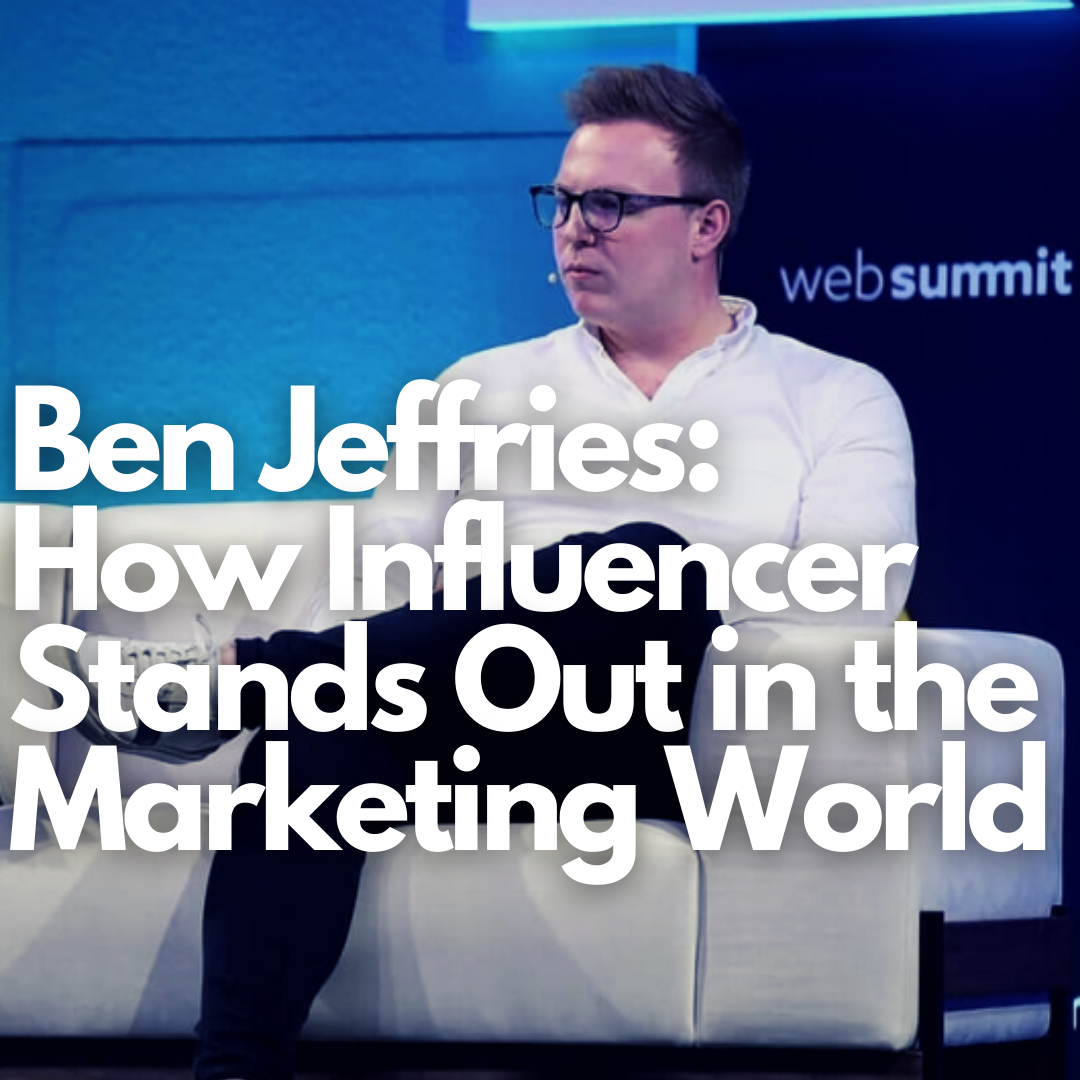
Agency
Ben Jeffries: How Influencer Stands Out in the Influencer Marketing World
With special technology and global partnerships, Influencer has helped transform the online marketing space. And Influencer CEO Ben Jeffries is committed to making influencer marketing as transparent and as effective as possible for his clients.
Influencer CEO and co-founder Ben Jeffries understands the power of social media. Like a few successful men in the tech space (think Steve Jobs and Mark Zuckerberg), Ben dropped out of college and focused hard on how to make his business — a clothing company, at the time — grow. A part of his marketing tactics? Influencer marketing. His brush with this type of promotion ultimately led him to creating Influencer, a business that helps clients develop ways to gain online attention by working with content creators.
While celebrities are popular on social media, Ben shared that smaller influencers had developed closer bonds with their followers. This made them valuable for marketing campaigns.
“There were people who would have these communities of perhaps 10,000, 20,000, and 30,000, but would have, you know, a strong connection with their followers and strong meaningful relationships with their followers. And in turn, you know, that meaningful relationship would mean that their followers would genuinely listen to them and genuinely interact with them.”

One of Forbes’ “30 under 30” in 2020, Ben has witnessed influencer marketing’s evolution over the years and sees it as an asset for all markets.
“I think where influencer marketing has really grown and really strengthened is that it’s now not just about competing against other marketing forms. Influencer marketing is like the perfect complimentary form to other media formats. So, you know, we now see influencer marketing and the content that’s produced being used for out-of-home adverts. We also partner with TV.”
How Influencer Found Its Footing
Having worked on Influencer in the 2010s, Ben saw his company truly kick off in 2017. Influencer gained even more traction in the years that followed and worked with brands like Pantene, Starbucks, and Quizlet. The company has even developed content strategy for the U.K. government!
“It’s not necessarily just about trying to, I guess, fill the space in the influencer marketing industry. I think for us, we want to be producing quality campaigns at scale for our clients. … For us over the years, we’ve been working with a variety of different campaigns and different sectors and getting brands those guaranteed successes.”
So, just what does Influencer do?
“In short, [we] run campaigns for our clients from end to end, giving them guaranteed success on social using our three key pillars of strategy, insights, and technology.”
What Makes Influencer Stand Out From the Competition
Ben and his team created a way for clients to be more involved in the campaigns Influencer develops for them: Waves. This technology allowed companies to see the data Influencer was working with and determine what influencers felt on-brand.
“So what we decided to do was build a technology that would really be centered around three key functionalities of plan, activate, and measure. And what this was, was it enabled our clients to be able to have full data transparency over how the influencer management marketing chain works. So they would be able in the plan stage to have full brand safety control over choosing the creators that our teams have suggested in the activate stage.”
Then, at Influencer’s “measure” stage, clients are able to see “live results” of campaigns. Influencer gathers this data from the likes of Facebook, Instagram, and TikTok, with whom the company serves as an official global marketing partner.

What Influencer Looks for Before Starting a New Campaign
Before Influencer sets out to work on a new campaign, the team considers the goal. Ben explained that they first determine if the campaign will be for awareness, consideration, or conversion. How they’ll go about marketing will depend on this first step.
“Really important to stress that because the strategy and the types of creators who you use will be very, very different. And because of our experience over the last, you know, six, seven years, we have the data to know which creators and which strategy will work most effectively across those key KPIs [Key Performance Indicators].”
Another core component in Influencer’s success is selecting the right influencer for the job and allowing them to use their own voice in campaigns. This makes the partnership between the influencer and the company they’re promoting feel genuine to followers. Often Influencer will work with these content creators multiple times to boost this feeling of authenticity.
“We want to make sure that because the collaboration is authentic, we want to make sure that it’s not just a one-off campaign, and if it’s successful, we can identify ambassadors for our brands that we work with and they can sign longer term contracts, whether that be three months, six months, 12 months, but it helps form that more authentic relationship long-term.”
How Ben Jeffries Believes Brands Can Improve
Having seen Influencer’s success firsthand, Ben has a clear understanding of what makes an influencer campaign a hit — and what makes it doomed to fail.
“It’s really important that if you want to have a campaign which works on social media and is successful, to think about your influencer marketing plan at the media plan stage. And you will see much more success within delivering your campaign.”
He also believes that teamwork is key.
“You do need a technology which encourages a collaborative workflow and empowers brand performance. And that’s exactly what our platform Waves does. And that’s why we built it: to enable our clients to have that collaboration.”
A major way that brands can improve their online marketing strategy is to expand their campaign to multiple platforms. Rather than plan to market on only Instagram, why not plan a campaign to target Instagram, Facebook, and TikTok?
“The most effective platform to actually use is actually a cross-platform approach. So, you know, you shouldn’t just be saying, okay, let’s run a campaign on YouTube or let’s just run a campaign on Instagram or let’s just throw one on TikTok. The most effective campaigns are when you do a multi-channel approach and you run different strategies, one each to hit all the different touch points.”












